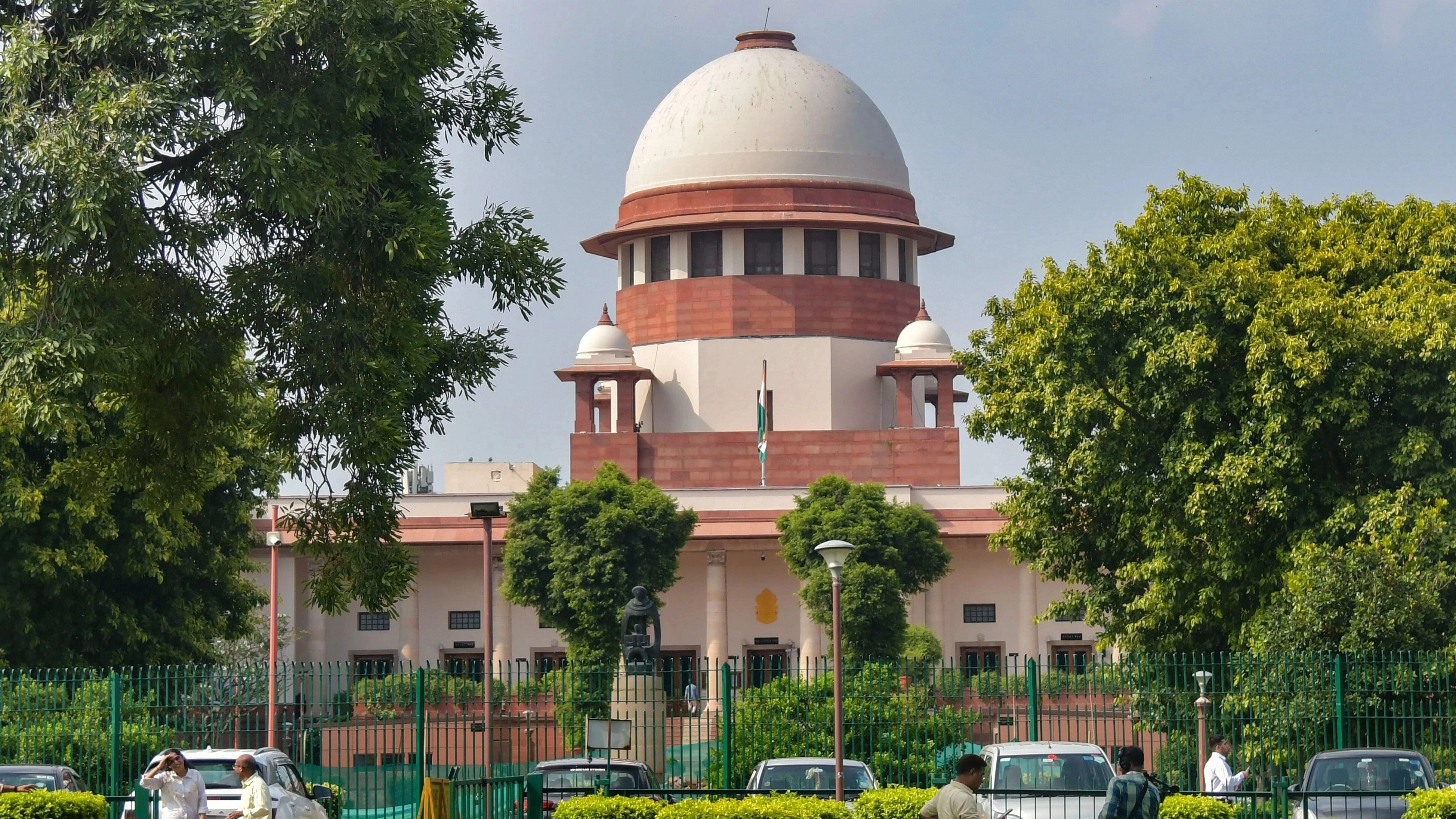
The Supreme Court of India.
Credit: PTI Photo
The Supreme Court on Wednesday said action must be taken against any and all kinds of hate speeches as it declined to pass any orders on individual contempt petitions, including one against Tamil Nadu minister Udhayanidhi Stalin regarding his statements on 'Sanatana Dharma'.
A bench of Justices Sanjiv Khanna and Justice S V N Bhatti said if courts begin to examine individual cases, it will not be able to deal with the main matter (hate speech) itself, and it will be ‘impossible’ to hear individual cases across the country.
“We cannot deal with individual aspects. What we will do is to put an administration mechanism in place and if there is any breach, then you will have to go to the respective high court," the bench said.
Referring to Stalin’s and other matters, advocate Vishnu Shankar Jain submitted, “The instances of hate speech are in teeth of the court's order. When a similar case was filed, the court had issued notice. See the Sudarshan news channel case”.
The court clarified that hate speech has been defined by this court, the question is of implementation and understanding how it is to be applied as to on which cases it is to be applied and on which case it has not be applied.
“We cannot go into individual cases,” the bench emphasised.
Advocate Nizam Pasha referred to repeat offenders. He submitted that the difficulty that we need to address is that when the same person who has made hate speeches in the past and FIRs have been registered, ask for permission to conduct speeches and permissions are granted permissions.
The court issued notice to Gujarat, Kerala, Tamil Nadu, and Nagaland, to respond whether they appointed nodal officers in terms of the 2018 judgment in Tehseen Poonawala case to deal with hate crimes and mob violence. The apex court has scheduled the matter for further hearing on February 5, 2024.
Earlier this month, the Centre had informed the Supreme Court that 28 states and Union Territories have appointed nodal officers for devising a strategy to tackle lynching and mob violence following hate speech incidents in the country.
The affidavit has been filed by the deputy secretary in Ministry of Home Affairs before the apex court on November 17, in compliance with court's directions.
On April 28, 2023, the top court, on a writ petition by Shaheen Abdullah, has directed all States/UTs to register suo motu FIRs in offences such as Section 153A, 153B, 295A and 506 of IPC etc, without any complaint being filed.
